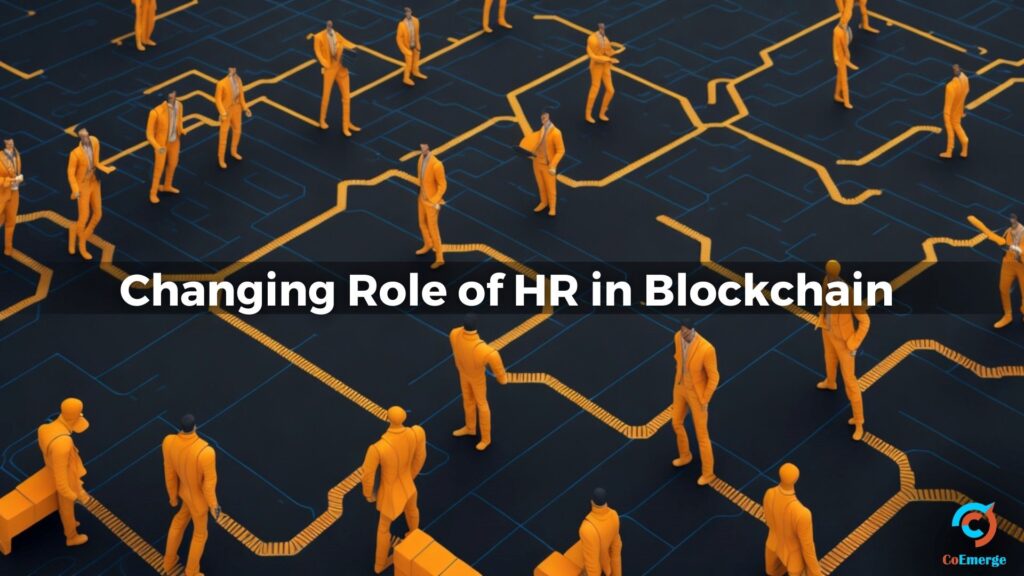
Emotionally Intelligent Living: Navigating the Heart and Mind
Emotionally Intelligent Living: Navigating the Heart and Mind Emotions are a precious tool to orient your decision-making process. Usually when we hear the word ‘intelligence’,
Discover the Potential of Blockchain in Human Resource Management! From tracing its historical roots to modern cryptographic innovations, blockchain explained in simple terms. Envision a future where blockchain transforms HR processes. Streamlining payroll, verifying candidate credentials, safeguarding employee data, and automating contract enforcement are just a few of its applications in HRM.
Blockchain, a revolutionary concept, has the potential to reshape various industries by providing a decentralized and secure ledger system that fosters trust and transparency. In this article, we aim to explain blockchain in simple terms, tracing its historical roots from collective validation in ancient societies to modern cryptographic innovations.
Moving forward, we explore its applications in Human Resource Management (HRM), envisioning a future where blockchain transforms HR processes. Blockchain offers solutions for streamlining payroll, verifying candidate credentials, safeguarding employee data, and automating contract enforcement. While the opportunities are promising, there are challenges to overcome as well.

We’ll also try to predict, what the future looks like for HR professionals and What is going to be the shift in responsibilities after the advent of blockchain. So, let’s get started.
Humans are social creatures who thrive among like-minded individuals and tribes. Throughout our history, validation for an event was provided by people collectively. For example, think of a recent marriage you attended, there were a lot of people present, just to witness the wedding of two individuals and validate them as a married couple in society. In Indian weddings, the Pandit (Priest) also directs both the bride and groom to think of the Agni (fire) as a Sakshi (eye-witness).
As civilizations evolved, the responsibility of the community to witness any transactions, bonds or contracts got transferred to the governments and courts. This system has standardised procedures, courts and legal formalities in place, but there’s a drawback. Wherever there are people involved, there’s always a scope for corruption.
To complete the circle and get back to the decentralised system, Cryptographer David Chaum proposed a blockchain-like protocol in 1982 describing it as a technology which can be used to establish and maintain trust in Mutually Suspicious Groups or individuals. Here, blockchain technology can witness and maintain transactions, bonds and contracts on behalf of people, with people. If there’s any wrong information entered, the other people (blocks) from the community (chain) will decline that information.
In the context of HR, blockchain holds the promise of revolutionizing the storage of employee data and records. The potential of blockchain in HR extends further, envisioning a decentralized candidate database that could streamline the hiring process. Moreover, the emergence of smart contracts presents the tempting prospect of automating the enforcement of employment agreements.

Blockchain’s ability to automate and secure payments opens the doors to streamlined payroll processes. Cross-border payments, particularly crucial for contractors and gig economy workers lacking bank accounts, find solace in blockchain. Major HR software vendors, including industry giant ADP, have already begun exploring blockchain applications for payroll.
Candidates can leverage blockchain to tokenize their identity, presenting virtual credentials, such as college transcripts, resumes, and training certificates, with unwavering trust. By streamlining the verification process, blockchain HR technology has the potential to alleviate the burden of documentation verification and reduce the costs associated with background checks.
Blockchain’s encryption capabilities empower HR to store personal information securely, offering a robust governance system for private data. While ensuring immutability, it is important to note that the veracity of information relies heavily on the honesty and methods employed during record creation.
Smart contracts enabled by blockchain have the power to metamorphose traditional paper contracts into immutable digital counterparts. Employers can deploy smart contracts to enforce agreed-upon terms and penalties with employees and contractors. Notably, the utilization of blockchain for employment contracts and background/reference checks holds substantial promise.
This one is fascinating, employees themselves may embrace personal blockchains, encompassing their entire professional identity. This all-encompassing blockchain repository includes academic transcripts, credentials, work history, employee reviews, and training data. With control over their personal records, employees can grant access to employers while maintaining sovereignty over their data.

Blockchain comes with such tempting solutions as well as a few challenges before implementation. Such as:
Blockchain, while offering security, remains susceptible to data vulnerabilities during transmission. HR professionals, entrusted with personal information and financial transactions, face the risks associated with potential cyber threats.
As blockchain lacks standardized regional regulatory frameworks, organizations tread a fine line, risking financial losses and legal penalties for non-compliance with data protection and privacy regulations, such as the General Data Protection Regulation (GDPR).
Blockchain transactions often require the involvement of third-party vendors. The trust established through blockchain technology extends to the security measures implemented by these vendors, which may not be as robust as the underlying blockchain infrastructure.
The human factor poses an internal risk within HR. Employee hesitancy to store personal information on a distributed ledger poses challenges to harnessing blockchain’s full potential.
Blockchain offers a range of solutions that will simplify, automate and fasten the current duties of HRM like Recruitment, Payroll and Contracts. This comes with the opportunity for the HR community to focus mainly on engagement, performance analytics and learning and development of employees. Human Resource Managers can look forward to participating in the decision-making of the company’s future endeavours. The flood of change is challenging but also brings fertility in the form of increased responsibility and rewards. So keep learning, keep growing and stay ahead of the curve.

Emotionally Intelligent Living: Navigating the Heart and Mind Emotions are a precious tool to orient your decision-making process. Usually when we hear the word ‘intelligence’,

Navigating the Transition from Campus to Corporate: A Guide to Developing Competency. The transition from campus to corporate requires more than just academic knowledge; it

Unveiling Leadership Mastery: Distinguishing the Art of Management from Genuine Leadership Introduction: In the ever-evolving landscape of business, the essence of true leadership stands as
Copyright © 2023. All Rights Reserved with CoEmerge. Designed by JustGlobal Technology